Sequins, Skin And Politics As Rio Carnival Opens
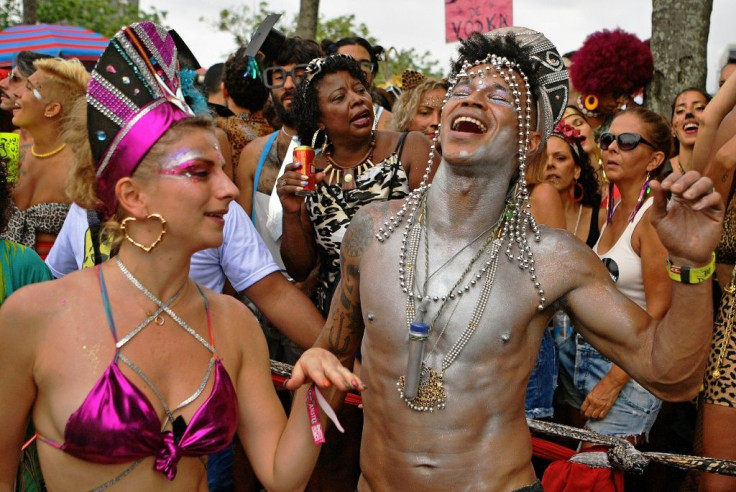
Rio de Janeiro kicked off its annual carnival parades Sunday in a swirl of glitter, sequins and barely covered skin, an over-the-top spectacle that this year is packed with political commentary on Brazil's far-right government.
Vying for the title of carnival champions, the city's 13 top samba schools get around one hour each to wow spectators and judges with elaborate shows flush with scantily clad dancers, small armies of drummers and huge floats built on seemingly impossible feats of engineering.
The event has taken a particularly political turn after a year under far-right President Jair Bolsonaro, who has deeply divided Brazil with his overt attacks on just about every cause close to the carnival community's heart: diversity, gay rights, environmentalism, the arts.
"This carnival has a lot of protests because we want the world to see what's going on here. There are lots of people who are against this very extreme government," said Camila Rocha, dressed as an enormous gemstone as she prepared to enter the "Sambadrome," the massive avenue-turned-stadium where the groups parade.
Her samba school, Estacio de Sa, kicked things off with a show on the theme of "rocks" that featured floats covered in dinosaurs (prehistoric rocks), sparkling diamonds (precious rocks) and, finally, the moon.
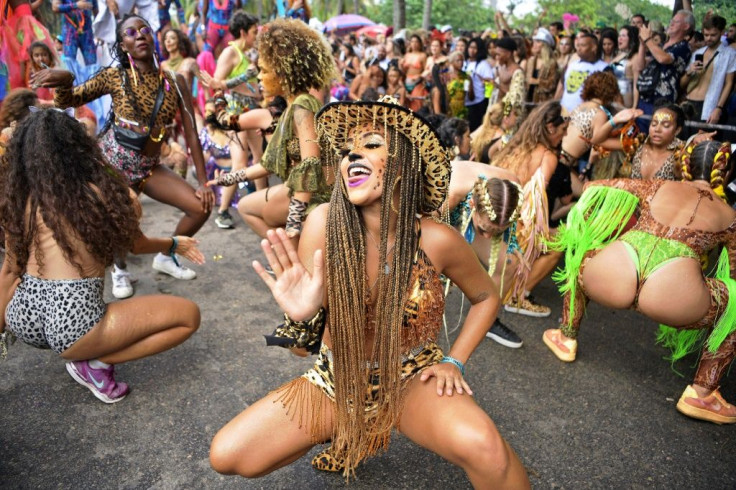
Director Rosa Magalhaes said that was meant to evoke the Earth turning into a barren, moon-like rock -- the kind of environmental catastrophe that critics warn the world could face if Brazil does not do a better job protecting the Amazon.
Bolsonaro has faced condemnation from environmentalists and the international community over his policies on the world's largest rainforest.
Deforestation of the Brazilian Amazon increased 85.3 percent in his first year in office.
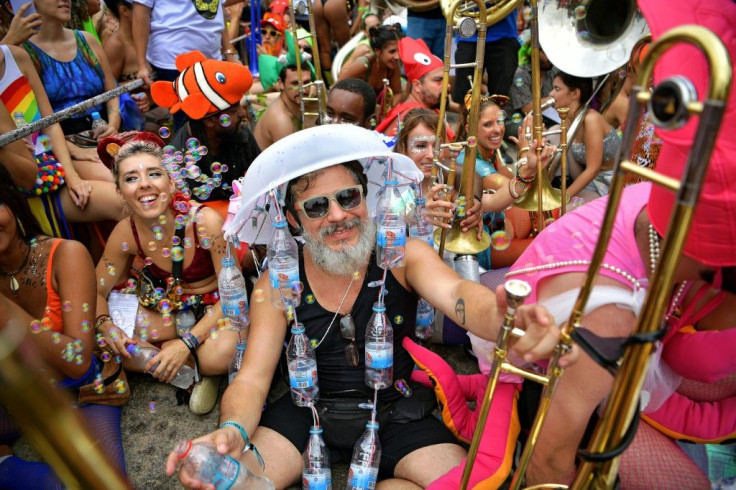
Reigning champions Mangueira then threw religion into the mix.
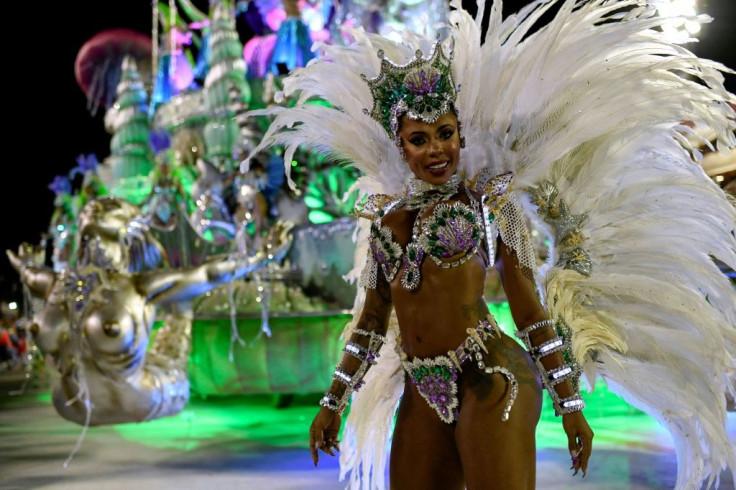
Their show depicted Jesus returning as a resident of one of Rio's impoverished favela neighborhoods and preaching a message of tolerance -- only to be beaten and persecuted by the police.
Mangueira presented various revisionist versions of Jesus -- black, a woman, a man in eyeshadow and rouge.
That drew backlash even before the parade from a key group of Bolsonaro supporters, Christian fundamentalists, who sent the school a petition calling the show "blasphemous."
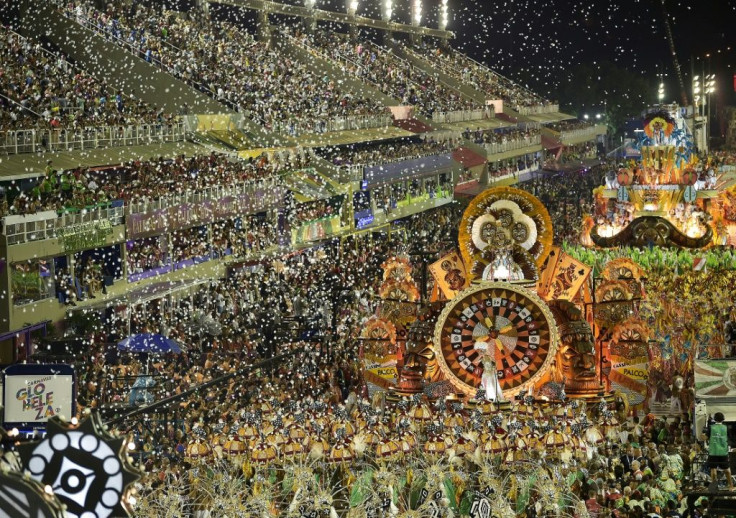
"It caused a huge controversy, but the school was just celebrating tolerance," said Sirio Sazer, a 34-year-old lawyer decked out as a Roman soldier for the show.
Another group, Uniao da Ilha, also explored the theme of police violence in poor communities, after killings by the authorities in Rio de Janeiro state surged by 18 percent last year, setting a record.
The group's floats were encircled by police helicopters. Instead of firing bullets, though, these helicopters, marked "Agents of the Peace," fired white T-shirts and glitter.
"We want the general public to know our community isn't just violence," said one "pilot," Leandro Barcelos, 36, after a crane extracted him from his helicopter at the finish line.
The most successful school in the history of the contest, Portela, wrapped up the first of two days of parades well after dawn, with a tribute to Brazil's indigenous Tupinamba people.
Their central samba song featured veiled criticism of Bolsonaro and Rio Mayor Marcelo Crivella, a fellow far-right politician who is also a bishop in one of Brazil's biggest evangelical mega-churches.
Crivella has criticized the city's world-famous carnival party since taking office in 2016, and steadily cut the 28 million reals ($6.4 million) in annual public funding that the top samba schools used to receive.
This year, the schools received zero funds from the city.
Often based in Rio de Janeiro's poorest neighborhoods, the samba schools spend most of the year getting ready for carnival, with the help of thousands of workers and volunteers.
The spectacle draws a live audience of some 70,000 spectators and millions more watching on TV.
In reality, Rio has already been partying for carnival more than a week with epic street festivals known as "blocos."
Fueled by alcohol and samba, they drew an estimated two million revellers last weekend.
© Copyright AFP 2024. All rights reserved.




















